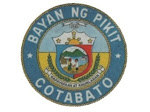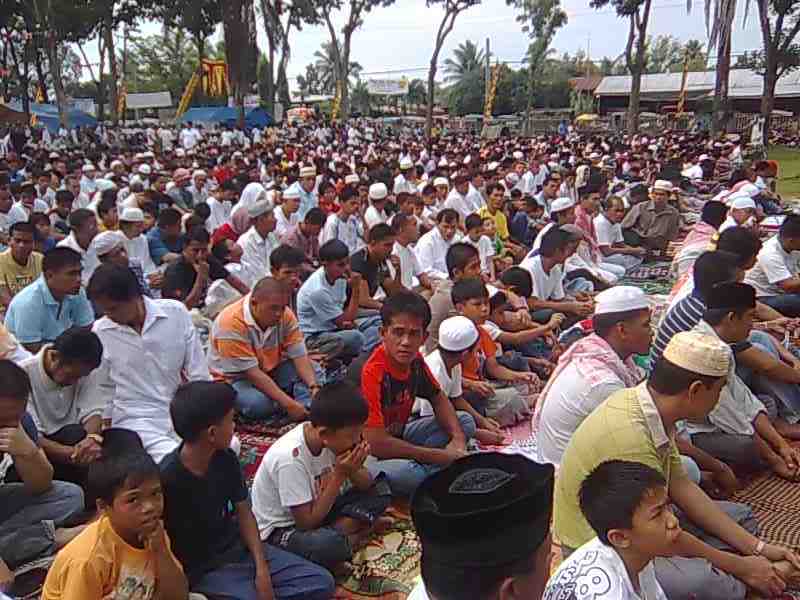By Maugan P. Mosaid, Ph.D.If we look back to the failure of the MOA-AD, observers and critics were one in saying that the main culprit has been the lack of consultation at the grassroots level. What happened was we had a high level GRP-MILF peace negotiation that was not well-grounded as it lacked one of the most important ingredients to the recipe of the peace process - the citizen’s input.
Speaking of citizen’s input to the peace process, the MLGUs are the frontline government instrumentality who can spearhead this kind of activity by initiating community dialogues. An LGU-led consultation is a new approach to the peace process or even the settling of community-based disputes.
Giving space for an LGU-led initiative to solicit citizen’s input is a pioneering effort as far as the peace process is concerned. Since 1975 when the formal peace negotiation between the GRP and the MNLF started, no LGU was ever involved, much more, consulted.
This is expected to be a breakthrough in the peace process. However, the LGUs cannot just be poked right away into taking on this new role without considering their capabilities to undertake such initiatives. Certainly, they would need some sort of capability building in terms of conceptualizing the whole thing and equipping themselves with the appropriate tools and techniques to generate substantial inputs and ensure success.
Realizing the importance and significance of all these things, the National Democratic Institute for International Affairs (NDI), an international NGO based in Washington DC, has come to the fore to enable some selected LGUs in the conflict-affected areas of North Cotabato, South Cotabato and Sultan Kudarat, all of Central Mindanao, along the aspects of initiating, facilitating, mediating and resolving conflicts whenever possible at the community level. Some fifteen (15) MLGUs from these provinces were invited to a designing workshop in Davao City on May 13-15, 2009 to run them through the whole process of conflict management and peace negotiation and find out where they would need immediate interventions.
The NDI-sponsored (and supported by the UN Multi-Donor Act for Peace) seminar workshop was aptly titled: “LGUs Creating Space for Citizen Dialogue on Peace and Security: A Designing Workshop”. It basically started with the question: “What would be the constructive role of the LGU in the peace process?”
Taking off from there, we were given a rundown of the presentations of Prof. Rudy Rodil (member of the defunct GRP negotiating panel) on “How Peace Became and Continues to be Mindanao’s Most Compelling Challenge”. We were presented with the root-causes of the so-called Mindanao conflict from its historical perspective. Now, the conflict had grown and expanded from its local and national dimensions to something international since the Organization of the Islamic Conference became interested in helping to resolve the conflict.
The next presentation was that of Director Alex Umpar of the Office of the Presidential Assistance on the Peace Process (OPAPP). It gave us a rundown of the government’s efforts in addressing the issues of peace and security outside the confines of the negotiations. In the interactions with the participants that followed, it was noted that raising the “peace fund” from local source, as for example, the internal revenue allotment, is quite sketchy in terms of its legal basis, unlike the calamity fund which is fixed by law at 5% of the IRA.
The presentation of Mr. Kaloy Manlupig, President of Balay Mindanao, gave us a clear view of how localized negotiation can be made possible by relating to us their experience in negotiating with the RPMM (Rebolusyonaryong Partido ng Manggagawa sa Mindanao), a breakaway faction of the CPP-NPA which operated in Northern Mindanao. It gave us the message that small victories can be won at the community level in the presence of a credible mediator who has mastered the art of transformative mediation.
I have appreciated the non-conventional approach to peace negotiation that was employed. The conventional approach has been the cycle of 1. CESSATION OF HOSTILITIES 2. NEGOTIATION 3. SIGNING OF AGREEMENT, and then 4. ADDRESSING THE PROBLEM. The non-conventional approach used in this particular negotiation was 1. CESSATION OF HOSTILITIES 2. EXPLORING THE ROOTCAUSES OF THE CONFLICT 3. EXPLORING SOLUTIONS TO THE CONFLICT 4. TRANSLATING THEM INTO TALKING POINTS 5. NEGOTIATION 6. SINGNING OF AGREEMENT 7. IMPLEMENTATION OF THE AGREEMENT, and 7. MONITORING AND FEEDBACKING. The advantage of the latter is that the benefits of negotiation can already be implemented along the way even without the benefit of signed formal agreement. The latter is dependent on the so-called “peace dividend” or the benefits of negotiation is addressed at a much later stage.
Finally, we were given the presentation of Prof. Saturnina Rodil about “Finding Solutions to Complex Problems”. We were made to understand that somehow there is an interconnection between and among existing problems. One may be the cause or effect of the other/s. Then, given the nature and magnitude of the issues or problems, why do we have to dialogue? We need to – because different individuals and groups have different perspectives and appreciation of the issues or problems.
The strategies, solutions and recommendations could vary according to the nature and magnitude of the conflict. We realized that not all conflicts or security concerns can be resolved at the LGU level. Somehow, the LGUs must do something to address the peace and security issues in their respective localities.
Our last activity was the designing workshop which primarily focused on conceptualizing the conduct of community dialogues. At the onset, we were cautioned to do causal look-back so that dialogues can lead to the root-cause of the problem rather than the symptom.
All community dialogues must be issue-based. Before the formal talking starts, there should be substantial leg-working and communication until mutual trust and acceptance are established with respect to the issues, processes and people involved.
After all was said and done, I must confess that the result of the three-day designing workshop to create space for LGU participation in generating the citizen’s inputs to the peace process is very encouraging. When every LGU is able to manage, contain and resolve issues of conflict, peace and security in their respective areas – who needs a high level national or international negotiation. The sum of the parts is greater than the whole.







